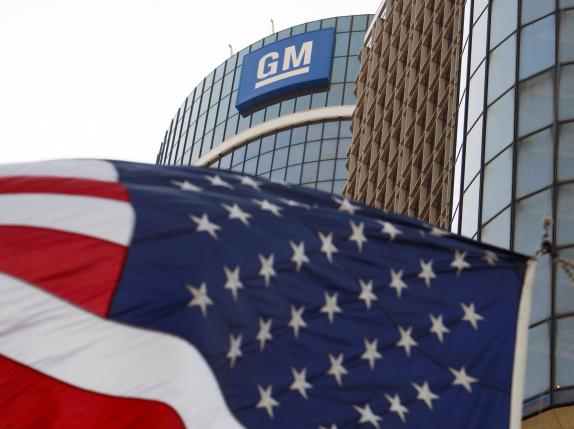6/11/2015

Photo courtesy of Jeff Kowalsky/Reuters
It looks like the U.S. Department of Justice’s criminal investigation into General Motors’ pre-recall knowledge is tightening its grip around the company, as the agency is now considering wire fraud charges against the company. Star Manhattan U.S. Attorney, Preet Bharara, and his office are leading the investigation in conjunction with the Department of Justice. Bharara also led the case against Toyota, having garnered the largest fine in automotive history at $1.2 billion. According to the Associated Press, GM CEO Mary Barra acknowledged on Tuesday during the company’s annual shareholder meeting that she answered questioning from Bharara’s office in New York last year over the failed ignition switch issue that has led to 111 deaths and over 200 injuries to date. The defect was noted over a decade ago, and despite the deaths and the consumer complaints, GM did not issue a recall on the deadly part until February of 2014. The company has already admitted that they violated defect disclosure laws; however, the company eventually recalled roughly 2.6 million vehicles in 2014. The recalls include several GM vehicles, but the Chevrolet Cobalt and the Saturn Ion have been the most frequent specimens.
Many believe that even though the Toyota recall was larger in scope, ultimately the fine against GM will be larger due to the company’s actions, withholding information as opposed to Toyota’s generally cooperative posture. Regardless of the fine, some people like victims’ attorney Bob Hilliard, doesn’t believe any investigation will go far enough. In a statement, Hilliard said, “Unless and until GM employees face jail time, and GM faces a loss of all of its profits, there will always be an attitude that ‘customers are expendable, profits are not.'” Although she declined to comment on the wire fraud charges specifically, Barra said “We have cooperated fully. It is their timeline and we are going to continue to cooperate to the fullest extent that we can. Anything else is pure speculation and does no one any good.” The wire fraud charge itself, stems from the company making misleading statements about the vehicle’s safety, as opposed to being charged for making defective parts. Bahara’s office charged Toyota with wire fraud, leading to the record settlement as well as the maximum $35 million fine from the leading auto regulator, the National Highway Transportation Safety Administration (NHTSA). Although wire fraud and mail fraud charges are a catch-all for federal prosecutors, according to legal experts, the Toyota case is the first time the department has actually used that charge regarding a defect.
The two sides are expected to hash out a settlement over the summer, possibly dragging out until the fall. More than likely, the wire fraud charge is an enticement to get the company to settle the case expediently. GM has already paid the maximum NHTSA fine as well, largely due to a report commissioned by GM and conducted by former U.S. Attorney, Anton Valukas. Valukas found that there was internal knowledge about the defect for over a decade before the recall. The Department of Justice has not ruled out seeking additional charges, especially relating to the degree that company executives intentionally withheld information about the defect prior to the company’s 2009 bankruptcy. In addition to the potential record-fine, the company has spent an estimated $3 billion attempting to fix the ignition switch problem and expects to pay between $400 million and $600 million in victims’ compensation claims. Currently, there are roughly 4,300 individual claims for damages due to the defect. Sources close to the Department of Justice say it is still unsure if it will allow a similar deferred prosecution agreement like Toyota, or if it will force GM to plea to a crime. Toyota was given a 3-year deferment and the Department of Justice will seek to dismiss the charges if Toyota fulfills the terms agreed upon in the settlement.
Sources:
MLive.com – David Muller
Reuters – Susan Heavey, Ben Klayman, and Matthew Lewis
USA Today – Nathan Bomey
Wall Street Journal – Christopher M. Matthews and Mike Spector


Join the conversation!